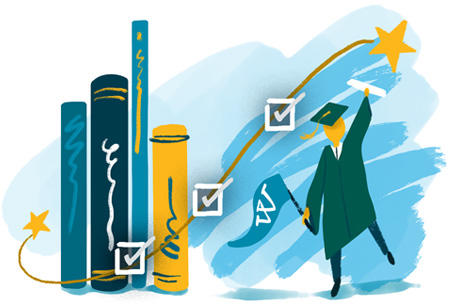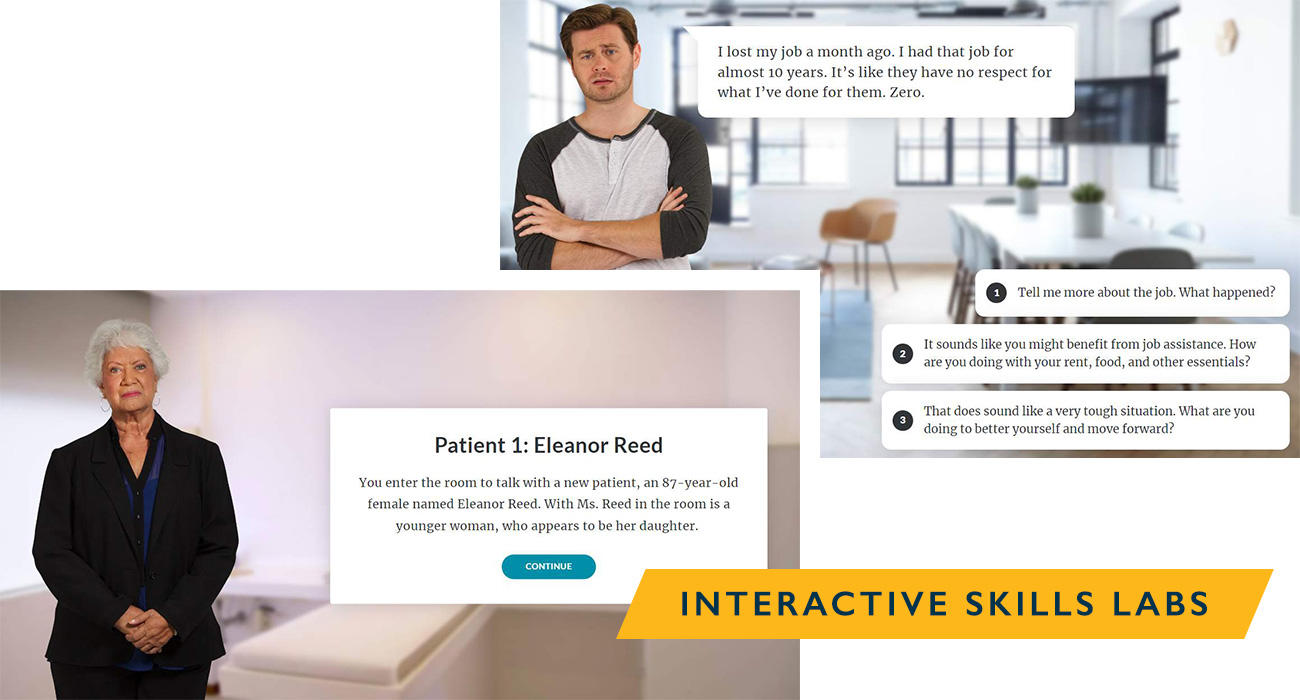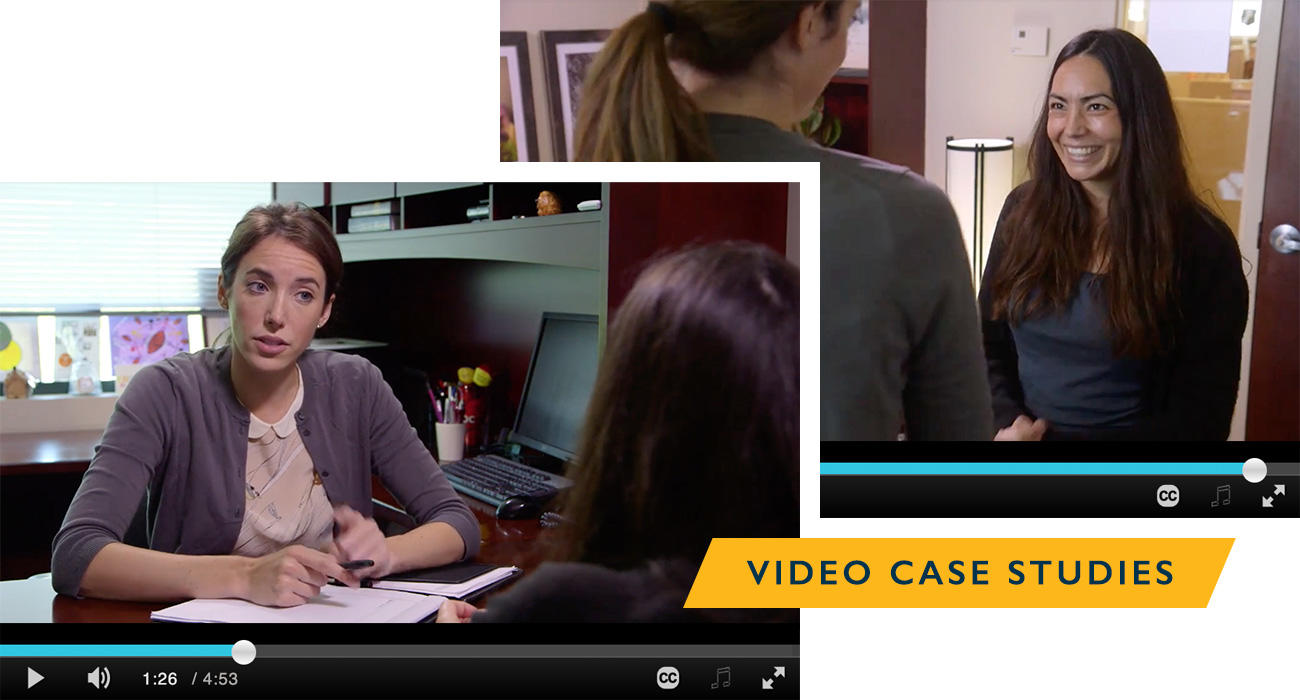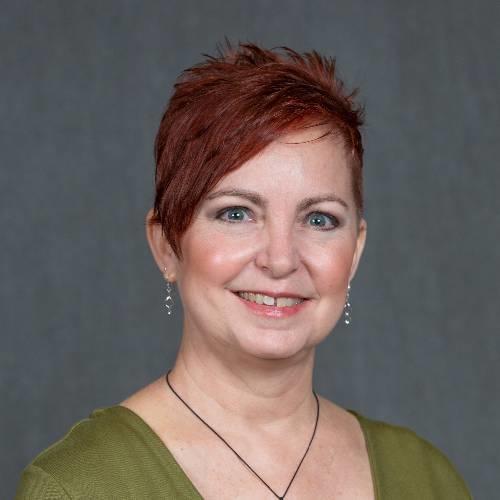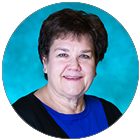Why Choose Walden?
Prepare for Practice With Walden’s CSWE-Accredited Social Work Programs
Do you want to make a real impact in people’s lives? Walden’s Bachelor of Social Work (BSW) and Master of Social Work (MSW) programs are CSWE-accredited and help you learn to address the needs of individuals, families, and communities. CSWE accreditation means that a program prepares you to apply ethical principles and critical thinking to social work practice. Earning a degree from one of our CSWE-accredited programs also academically prepares you to sit for social work licensure exams.
Discover a new bachelor’s education experience for first-time adult college students.
Walden Undergraduate Academy™ opens new doors for working adults like you and makes earning a degree more achievable than ever before. This dedicated learning experience has an extra layer of support to help you build your confidence and academic skills before you start your online bachelor’s program.
Questions about Walden's BSW program? Our Enrollment Specialists are here to give you answers.
Complete your BSW at Walden
If you have taken college-level courses at another accredited university, you may be able to transfer up to 130 quarter prior credits into our BSW program.1 No matter where you are in your undergraduate degree journey, we welcome you to complete your degree at Walden.Questions about Walden's BSW program? Our Enrollment Specialists are here to give you answers.
Continue Your Journey With an MSW
Pursue licensure and new career opportunities with an MSW degree. Both our BSW and MSW programs are accredited by CSWE. Keep the momentum going and continue into our master’s program upon completion of your BSW program.
Reduce Cost and Time Completion of Your MSW
In addition, BSW graduates with a 3.0 GPA or higher at graduation are eligible for the Advanced Standing option in our MSW program, which reduces the credits required for completion of the program. If you are eligible, choosing this option allows you to skip foundational courses and start your degree with advanced-level courses.
Questions about the Advanced Standing option in our MSW program? Our Enrollment Specialists are here to give you answers.
| Curriculum Component | Requirements | Cost | Amount |
|---|---|---|---|
| Tuition | 182 quarter credit hours | $340 per quarter hour | $61,880 |
| Skills Lab Fee | One in program. In person or Virtual option. | $1,420 (Virtual) $1,520 (In-person: travel, lodging, and other expenses are additional) | $1,420–$1,520 |
| Program Fee | Per quarter | $175 | $2,800 |
| $66,100–$66,200** | |||
| BELIEVE & ACHIEVE SCHOLARSHIP YOUR TUITION | -$18,340 $47,760* | ||
*Represents virtual Skills Lab, minimum time to completion, and Believe & Achieve Scholarship. Your actual total program time and costs may vary. Believe & Achieve Scholarship savings based on current tuition. See Scholarship Details for more information.
**Tuition reflects the minimum time to completion. Time to completion varies by student, depending on individual progress and credits transferred, if applicable. Tuition and time to complete may be reduced if transfer credits are accepted, or if you receive grants, scholarships or other tuition reductions. Walden may accept up to 135 transfer credits. For a personalized estimate of the number of your transfer credits that Walden would accept, call an Enrollment Specialist at 844-768-0109.
Tuition and fees are subject to change. Books and materials are not included and may cost up to an additional $5,000.
Program Outcomes
Become a Social Change Agent
Whether you’re looking to begin your career or build on your experience, Walden’s Bachelor of Social Work online program provides a clear path forward. Apply what you learn through virtual or face-to-face Skills Labs, video case studies, and other experiential tools. With expert assistance from our Field Office, you can then bring it all together during a hands-on field experience in an agency or other site in your local area.
Start your journey of lifelong learning at Walden, which offers bachelor’s, master’s, and doctoral degrees in social work online.
Learning Outcomes
As a graduate of our online BSW program, you will be able to:
- Demonstrate an understanding of what is needed to develop a professional orientation and identify as a generalist social work.
- Apply ethical standards and values to generalist social work practice.
- Advocate for social change through promoting social, economic, and environmental justice.
- Utilize evidence-based research to inform the practice of serving traditionally oppressed and disenfranchised populations.
- Apply theories of human growth and development to social work practice.
- Apply culturally competent generalist intervention skills as a generalist social worker.
Read our Bachelor of Social Work Program Assessment of Student Learning Outcomes.
Mission Statement
The BSW program’s mission is to cultivate the development of generalist social work scholar-practitioners who are able to provide ethical, evidence-based services to individuals, families, groups, organizations, and communities. With the BSW degree, social workers are prepared to use critical thinking skills and evidence-based practice to engage in generalist social work.
Related Articles
FAQ About Walden’s Online Bachelor of Science in Social Work
While both degree types help prepare you for a career devoted to improving people’s lives, it’s helpful to look closer to find the ideal match for your interests and goals. If you want to connect individuals or families in need with resources and services that improve their circumstances and help them achieve social equity, you may choose to pursue a degree in social work. If you’re more interested in studying the human mind and behaviors, a degree in psychology would be the best fit.
Yes, social work programs from reputable universities are accredited. Walden University offers two accredited social work degree programs: the Bachelor of Social Work (BSW) and Master of Social Work (MSW). These programs are accredited by the Council of Social Work Education (CSWE), a specialized accrediting body recognized by the Council for Higher Education Accreditation (CHEA). CSWE's Commission on Accreditation is responsible for developing accreditation standards that define competent preparation for professional social workers and ensuring that social work programs meet these standards.
The National Association of Social Workers (NASW) has designated March as National Professional Social Work Month, a celebration that highlights the important contributions of social workers. Social work professionals make a meaningful impact on nearly every aspect of society as advocates for the vulnerable and underserved. Dr. Barbara Solomon, namesake of Walden University’s Barbara Solomon School of Social Work, exemplifies this tradition of service. A retired Walden University board member and respected leader in the field, Dr. Solomon is recognized by the NASW as a Social Work Pioneer and is an inductee in the California Social Work Hall of Distinction. Walden is proud to count Dr. Solomon as a member of our community and celebrates the outstanding accomplishments of our social work students and alumni.
Social workers help individuals, families, and groups solve and cope with problems that may arise from a range of highly stressful life situations, including poverty, unemployment, inadequate housing, mental health conditions, chronic illnesses and disabilities, and abusive family situations. Professionals with a social work degree are employed in a variety of settings—hospitals and healthcare facilities, schools, social services agencies, mental health clinics, and private and nonprofit organizations. They advocate for their clients and connect them with social services designed to help alleviate their challenges.
While social workers can fill a variety of roles, in general, social workers can be divided into two categories:
- Direct-service social workers identify government and community services that can improve their clients’ situations, such as applying for government aid, finding employment, removing children from abusive homes, and connecting with community resources like home meal delivery.
- Clinical social workers directly address the needs of their clients, many of whom may have emotional and behavioral problems or psychiatric conditions. As clinicians, social workers are trained to perform psychotherapy and even diagnose patients. They are often part of a collaborative team of psychiatrists and advanced-practice psychiatric nurses.
1Credits for social work courses must have been earned in a CSWE-accredited program to be considered for transfer. No matter how many credits are accepted for transfer, you must complete at least 45 credits at Walden. Walden’s BSW program is a full undergraduate program. This means that we can accept eligible general education courses and social work-focused courses for transfer of credit.
2Source: Bureau of Labor Statistics, Occupational Outlook Handbook, Social Workers, SOC code 21-1020. Retrieved October 2021. National long-term projections may not reflect local and/or short-term economic or job conditions, do not guarantee actual job growth, and are subject to change.
3Source: Bureau of Labor Statistics, Occupational Outlook Handbook, Social Workers, SOC code 21-1020. Retrieved October 2021.
Career options may require additional experience, training, or other factors beyond the successful completion of this degree program.
Accreditation
Walden’s Bachelor of Social Work is accredited by the Council on Social Work Education’s (CSWE) Board of Accreditation, a specialized accrediting body recognized by the Council for Higher Education Accreditation (CHEA). Accreditation of a baccalaureate or master’s social work program by the Council on Social Work Education’s Board of Accreditation indicates that it meets or exceeds criteria for the assessment of program quality evaluated through a peer review process. An accredited program has sufficient resources to meet its mission and goals and the Board of Accreditation has verified that it demonstrates compliance with all sections of the Educational Policy and Accreditation Standards.
Note on Licensure
The Walden University Bachelor of Social Work (BSW) program is designed to prepare graduates to practice as licensed social workers in states that offer licensure at the bachelor’s level. However, each state board responsible for the regulation of social work has its own requirements for licensure, including appropriate accreditation of academic programs.
Walden’s Bachelor of Social Work has received accreditation by the Council on Social Work Education’s (CSWE) Board of Accreditation. Accreditation by the CSWE’s Board of Accreditation indicates that it has met all criteria for the assessment of program quality evaluated through a peer review process. A program that has attained accreditation status has demonstrated a commitment to meeting the compliance standards set by the Educational Policy and Accreditation Standards.
Prospective students enrolling in licensure-leading programs are advised that relocation to another state may impact the student’s ability to complete field experiences and/or to obtain professional licensure, certification, or other credential in another state. Prospective students are advised to carefully review, evaluate, and understand the requirements of the applicable licensure board in the state in which they intend to relocate.











